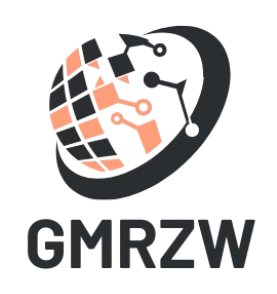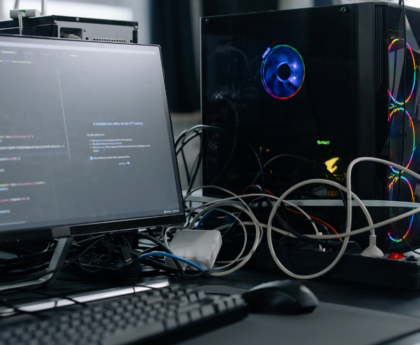Artificial Intelligence (AI) and automation have revolutionized industries across the globe, and by 2025, their impact is more profound than ever. From improving operational efficiency to creating entirely new business models, these technologies are redefining how businesses operate and how we live.
This article explores the transformative power of AI and automation in various industries and highlights their potential to shape the future.
1. AI in Healthcare: Revolutionizing Patient Care
AI has significantly transformed the healthcare industry by making patient care more precise, efficient, and personalized. In 2025:
- AI-Powered Diagnostics: Tools like AI imaging and predictive analytics help doctors detect diseases earlier and with greater accuracy. For instance, AI can identify cancerous cells in imaging scans faster than traditional methods.
- Personalized Medicine: AI algorithms analyze genetic data to recommend personalized treatment plans tailored to individual patients.
- Virtual Health Assistants: AI chatbots and virtual assistants provide instant medical advice, appointment scheduling, and medication reminders.
These advancements not only improve health outcomes but also make healthcare more accessible globally.
2. Manufacturing: The Rise of Smart Factories
Automation and AI are at the core of the fourth industrial revolution, transforming traditional manufacturing processes into highly efficient smart factories. Key trends in 2025 include:
- Robotic Process Automation (RPA): Robots handle repetitive tasks, such as assembly and quality checks, reducing human error.
- Predictive Maintenance: AI monitors equipment performance in real-time, predicting potential failures before they occur and minimizing downtime.
- Mass Customization: AI enables manufacturers to produce customized products at scale by optimizing supply chains and production lines.
These innovations enhance productivity while reducing costs, energy consumption, and waste.
3. Retail: Personalized Shopping Experiences
AI and automation have revolutionized the retail sector by enhancing customer experiences and streamlining operations. By 2025:
- AI-Driven Personalization: Retailers use AI to analyze customer behavior and recommend products tailored to individual preferences.
- Automated Warehousing and Delivery: Robots and drones ensure faster and more efficient delivery, reshaping logistics.
- Cashierless Stores: Stores equipped with AI systems and sensors allow customers to shop and check out without human interaction.
Retailers leveraging these technologies are creating seamless and engaging experiences for their customers.
4. Finance: Smarter Decision-Making and Fraud Prevention
The financial industry has embraced AI and automation to enhance decision-making, detect fraud, and improve customer service. In 2025:
- AI-Powered Analytics: Financial institutions use AI to analyze market trends, predict risks, and optimize investment strategies.
- Fraud Detection: AI systems identify suspicious transactions in real-time, reducing financial losses due to fraud.
- Chatbots and Virtual Assistants: Automated tools handle customer inquiries, manage accounts, and provide financial advice, improving client satisfaction.
These technologies enhance efficiency while ensuring security and trust in financial systems.
5. Transportation: Autonomous and Efficient Mobility
Automation and AI have redefined how we think about transportation, improving safety, efficiency, and convenience. In 2025:
- Self-Driving Vehicles: Autonomous cars and trucks are common, reducing traffic accidents and making logistics more efficient.
- AI Traffic Management: Cities use AI to optimize traffic flow, reduce congestion, and lower emissions.
- Smart Public Transit: Automated trains and buses operate with precision, enhancing urban mobility.
AI’s role in transportation ensures a smoother and more sustainable commuting experience for everyone.
6. Education: Personalized and Accessible Learning
AI is transforming education by making it more accessible, engaging, and tailored to individual needs. In 2025:
- AI Tutors: Virtual tutors provide one-on-one learning experiences, addressing the unique needs of each student.
- Automated Grading: AI systems assess assignments and exams, saving teachers valuable time.
- Adaptive Learning Platforms: AI-powered platforms adjust course materials and difficulty levels based on student performance.
These innovations ensure that education is not only more effective but also accessible to learners worldwide.
7. Agriculture: Smarter Farming Practices
AI and automation are enabling farmers to adopt precision agriculture, maximizing yields while minimizing resource use. Key advancements include:
- AI-Powered Drones: Drones equipped with AI analyze soil health, monitor crops, and apply fertilizers or pesticides precisely where needed.
- Automated Machinery: Self-driving tractors and harvesters streamline agricultural tasks.
- Predictive Analytics: AI analyzes weather patterns and market trends, helping farmers make informed decisions about planting and harvesting.
These technologies contribute to sustainable farming practices and global food security.
8. Energy: Optimizing Resource Use
In the energy sector, AI and automation are helping optimize resource use and integrate renewable energy sources into grids. By 2025:
- Smart Grids: AI-powered systems manage energy distribution more efficiently, reducing waste.
- Renewable Energy Management: AI predicts energy output from solar and wind sources, ensuring grid stability.
- Predictive Maintenance: Automation prevents breakdowns in power plants and renewable energy installations.
These advancements make energy production and consumption more sustainable and cost-effective.
9. Entertainment: Immersive and Interactive Experiences
AI and automation have transformed the entertainment industry, creating new ways to engage audiences. In 2025:
- AI-Generated Content: AI tools create music, art, and even movies, reducing production time and costs.
- Personalized Streaming: Platforms like Netflix and Spotify use AI to recommend content tailored to individual preferences.
- Interactive Experiences: Virtual reality (VR) and augmented reality (AR) powered by AI create immersive gaming and storytelling experiences.
These technologies are redefining entertainment, making it more interactive and personalized.
10. Customer Service: Automation Meets Empathy
Customer service has become more efficient and empathetic, thanks to AI and automation. By 2025:
- AI Chatbots: These handle routine inquiries, providing instant support 24/7.
- Sentiment Analysis: AI detects customer emotions and tailors responses accordingly.
- Robotic Process Automation (RPA): Back-office tasks like data entry and account updates are automated, enabling faster resolutions.
These tools enhance customer experiences while reducing operational costs for businesses.
Conclusion
By 2025, AI and automation are no longer optional—they are essential tools driving growth and innovation across industries. From healthcare and manufacturing to education and entertainment, these technologies are transforming the way we work, live, and interact with the world.
As businesses continue to integrate AI and automation into their operations, the focus must remain on ethical implementation, workforce upskilling, and sustainability. The future is here, and it’s powered by AI and automation.
What excites you most about these advancements? Share your thoughts in the comments below!





